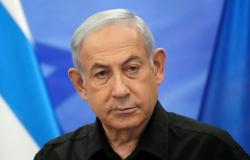
HIV infections, the cause of AIDS, fell to their historic lowest level in 2023, UNAIDS, which is responsible for the disease within the United Nations, announced on Tuesday. However, this decline is still considered far too slow.
“In 2023, there have never been so few people contracting HIV since the end of the 1980s”, the peak of the AIDS epidemic, summarized UNAIDS in its annual report.
According to the agency, between one million and 1.7 million people will be infected with HIV in 2023. It is this virus which, at the last stage of infection, causes AIDS, when the patient’s life is threatened by multiple opportunistic diseases against which his body no longer knows how to defend itself.
Deaths from AIDS – a little over 600,000 according to the agency’s estimates – are also at their lowest level since their peak, around twenty years ago.
External content
This external content cannot be displayed because it may collect personal data. To view this content you must authorize the category Social networks.
Accept More info
Progress too slow
Despite this favorable trend, the agency, which has set itself the objective of virtually eradicating the epidemic by 2030, considers this progress to be far too slow.
Around the world, around ten million infected patients do not have antiretroviral treatment, a therapy whose deployment has allowed countless people to live with the disease.
And, if the more recent arrival of preventive treatments – known as PrEP – has further accelerated progress against the disease, their deployment “remains very slow” where infections progress the fastest, regrets the agency. “Only 15% of people who need it will receive PrEP in 2023,” estimates UNAIDS.
>> Read also: Preliminary results of HIV preventive treatment spark excitement
afp/edel
Swiss





